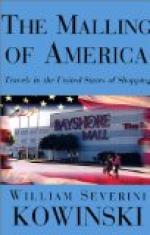* * * * *
Boston, December 29th, 1796.
DEAR FRIEND,
Upon my arrival here, I had once more the mortification to find myself in the neighbourhood of the yellow fever, which had lately been imported. The uncommon, early, and severe north-west winds entirely prevented it from spreading; a fortunate circumstance for the inhabitants of Boston, as, from the narrowness of their streets, great population, and other circumstances, it must have been very fatal, had it not been by this means destroyed.
In order to give you the most regular account of this disorder I could procure, I must repeat several circumstances from former letters.
The yellow fever, which has lately been so fatal, is a new disorder, first brought to the West Indies, in a slave-ship from the coast of Africa, late in the year 1792. It spread rapidly from island to island, and in July, 1793, was first imported to the continent in a french schooner to Philadelphia. The physicians of that city, naturally concluding it was the usual yellow fever of the West Indies, applied the common remedies in that case: viz., bark, and other astringents. In nine cases out of ten, death was the inevitable consequence to all who took these medicines. The disease was equally fatal to the faculty. A universal despondency took place, till doctor Rush, suspecting this was a new disorder, applied an opposite method of cure, by mercurial medicines, and copious bleedings; which, when administered in the first or second stage of the disorder, had the desired effect.
I send you an extract from the doctor’s pamphlet, wherein he explains his motives for adopting this method of cure, &c.
Speaking of the effect of the lancet, he says, “It was at this time my old master reminded me of Dr. Sydenham’s remark, that moderate bleeding did harm in the plague, where copious bleeding was indicated, and that, in the cure of that disorder, we should leave Nature wholly to herself, or take the cure altogether out of her hands.”
The truth of this observation was obvious:—By taking away as much blood as restored the blood-vessels to a morbid degree of action, without reducing this action afterward, pain, congestion, and inflammation, were greatly increased; all of which were prevented, or occurred in a less degree, when the system rose gradually from the state of depression which had been induced by indirect debility. Under the influence of the facts and reasonings which have been mentioned, I bore the same testimony in acute cases against what was called moderate bleeding, that I did against bark, wine, and laudanum, in this fever.—I drew from many persons seventy or eighty ounces of blood in five days.
* * * * *




